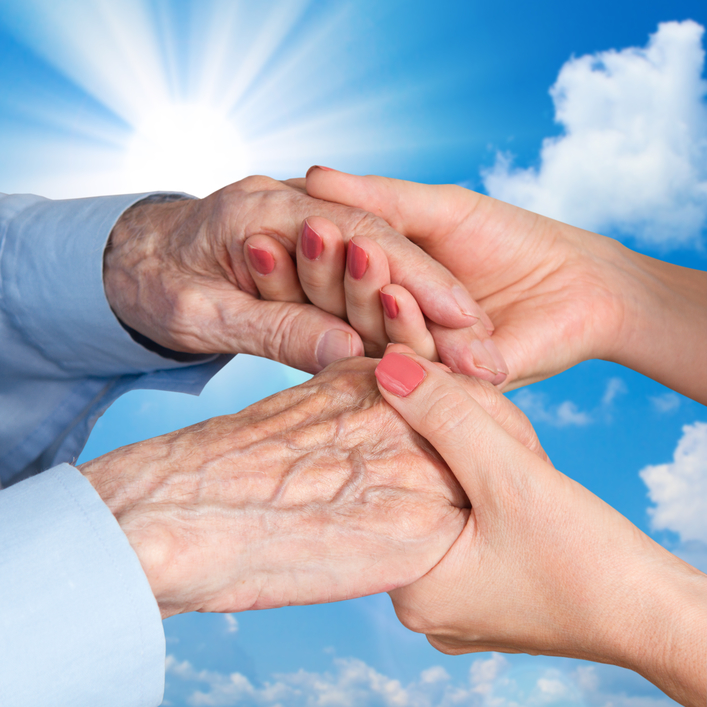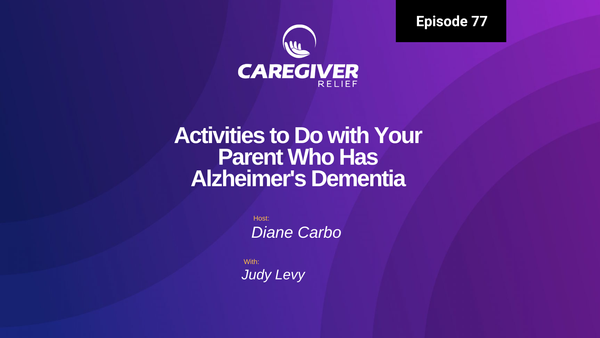Self-Care for the Caregiver: Essential Strategies for Well-Being
Discover essential strategies for self-care in "Self-Care for the Caregiver: Essential Strategies for Well-being". Explore practical tips on balancing caregiving with personal life, recognizing stress signs, and maintaining physical and emotional health for a sustainable caregiving journey.

Self-care for the caregiver is not just a luxury; it's a necessity.
Caregivers, often unsung heroes in the journey of healthcare and familial support, face a myriad of challenges that can take a toll on their physical, emotional, and mental well-being. The role of a caregiver, whether professional or familial, involves a level of altruism and dedication that, while admirable, can lead to personal neglect. Balancing the needs of others with one's own can be a delicate and often overwhelming task. It is here that the concept of self-care becomes paramount.
The Term "Self Care"
The term "self-care" encompasses a wide range of practices and activities that individuals engage in to promote their own health and well-being. For caregivers, this means actively taking steps to care for their own physical and emotional health, in order to maintain the resilience and energy needed to provide care for others. It's a recognition that to effectively support others, caregivers must first ensure their own health and well-being.
Challenges Caregivers Face
The challenges faced by caregivers are multifaceted. Physically, the demands can range from assisting with daily tasks to managing complex medical procedures, often leading to fatigue and exhaustion. Emotionally, caregivers might experience stress, anxiety, and feelings of isolation, compounded by the emotional weight of empathy and concern for those they are caring for. Additionally, caregivers often navigate through a complex healthcare system and may face financial and time constraints, adding to their stress levels.
The importance of self-care in this context cannot be overstated. Engaging in self-care activities helps caregivers to replenish their energy, reduce stress, and maintain a positive outlook. This can include practices such as regular exercise, adequate sleep, healthy eating, mindfulness or relaxation techniques, and seeking emotional support from friends, family, or support groups. By prioritizing their own well-being, caregivers are not only taking care of themselves but also enhancing their ability to provide the best possible care to others. Hence, "self-care for the caregiver" is not just a phrase; it's a critical component in the sustainable care of others.
The Importance of Self Care for Caregivers
The role of a caregiver, often characterized by its selflessness and compassion, can be immensely fulfilling. However, it also comes with its unique set of physical and emotional demands, making the importance of self-care for caregivers a topic of paramount significance. Understanding and addressing these demands is crucial in ensuring that caregivers can continue to provide care without compromising their own health and well-being.
The Physical Demands of Caregiving
Physically, the demands on caregivers can be strenuous. Caregivers often engage in tasks that require physical strength, such as lifting or assisting with mobility, which can lead to physical strain or injury. Many caregivers find themselves performing these tasks repeatedly, without adequate rest or support. This continuous physical exertion can lead to chronic fatigue, muscle strain, and, in some cases, more severe health issues. Furthermore, the nature of caregiving often disrupts caregivers' routines, leading to irregular eating habits and sleep patterns, which can exacerbate physical health problems.
The Emotional Demands of Caregiving
Emotionally, the burden can be just as heavy, if not heavier. Caregivers often experience high levels of stress due to the constant need for vigilance and the emotional investment in the well-being of those they care for. This stress is compounded by feelings of responsibility and, often, by a lack of sufficient emotional support. Many caregivers also face the emotional challenge of watching a loved one struggle with illness or disability, which can lead to feelings of grief, guilt, or helplessness.

The Consequences of Neglecting Self Care - Caregiver Burnout
Neglecting self-care amidst these challenges can lead to caregiver burnout - a state of physical, emotional, and mental exhaustion. Burnout is more than just feeling tired or stressed; it's a condition where a person feels overwhelmed and unable to meet constant demands. Symptoms of burnout may include fatigue, insomnia, depression, anxiety, and a decline in physical health. It can also lead to a decrease in the quality of care provided, as the caregiver becomes less able to effectively respond to the needs of the person they are caring for.
Therefore, it is essential for caregivers to recognize the importance of caring for themselves. This involves acknowledging their own needs and taking steps to address them. Regular physical activity, adequate sleep, and a balanced diet are crucial for maintaining physical health. Equally important is emotional self-care, which can include activities such as counseling, joining support groups, engaging in hobbies or interests, or simply taking time for oneself. It’s important for caregivers to recognize that taking care of themselves is not an act of selfishness but a necessity. By ensuring their own well-being, caregivers are better equipped to face the demands of their role and provide the best possible care.
In summary, the care of caregivers is a critical issue that deserves attention and action. Both physical and emotional demands are high, and the consequences of neglecting self-care can be severe. By prioritizing their own health and well-being, caregivers not only safeguard their own health but also enhance their capacity to provide compassionate and effective care to others.

Recognizing the Signs of Caregiver Stress
Caregivers, in their noble role of assisting others, often put their own needs aside. However, this selfless approach can lead to significant stress and burnout if not managed properly. Identifying the early signs of caregiver stress is crucial in taking timely steps towards self-care, thus ensuring both the health of the caregiver and the continued quality of care they provide.
Physical Signs of Caregiver Stress
One of the earliest indicators of caregiver stress is physical symptoms. Caregivers may experience chronic fatigue, despite getting adequate sleep, or they may find themselves feeling physically drained most of the time. Other signs include headaches, muscle tension or pain, stomach upset, and frequent colds or infections, suggesting a weakened immune system. Disruption in normal eating patterns, leading to weight loss or gain, can also be a sign of stress. These physical manifestations are the body's way of signaling that it's under constant strain and needs attention.
Emotional and Mental Indicators
Emotionally, caregiver stress often manifests as increased irritability, mood swings, or feelings of sadness. Caregivers might find themselves becoming unusually impatient or frustrated with the person they are caring for, or feeling guilty about these negative emotions. Feelings of depression, anxiety, and loneliness are also common, as caregivers may feel isolated in their responsibilities. A general loss of interest in activities that they once enjoyed can be a sign that the emotional burden of caregiving is taking a toll.
Behavioral Changes
Behavioral changes are another key indicator of caregiver stress. This may include withdrawal from social activities, neglecting responsibilities, or decreased interest in personal hobbies. Some caregivers might resort to unhealthy coping mechanisms such as increased alcohol consumption, smoking, or overeating. Sleep disturbances, such as insomnia or oversleeping, are also common signs of stress.
Cognitive Symptoms
Caregivers under stress may experience cognitive symptoms such as difficulty concentrating, persistent worrying, and constant feelings of being overwhelmed. They may have trouble remembering appointments or completing tasks that were once straightforward. This cognitive overload can be a sign that the caregiver is reaching a point of burnout.

The Importance of Early Recognition
Recognizing these signs early is critical in taking proactive steps towards self-care. Early intervention can prevent the progression to full-blown burnout, which is more challenging to recover from. Caregivers should view these signs as a cue to reassess their caregiving situation and explore strategies for stress reduction. This might include seeking support from family, friends, or professional services, setting boundaries, and taking time for self-care activities. Acknowledging and addressing caregiver stress is not just beneficial for the caregiver but also ensures the sustainability of the care they provide to others. Remember, taking care of oneself is an essential part of taking care of others.
Establishing Boundaries for Sustainable Care
One of the most effective self-care strategies for caregivers is setting clear boundaries. This involves defining limits on what they can and cannot do, both physically and emotionally. Establishing boundaries helps caregivers manage their time and energy more effectively, preventing them from becoming overwhelmed. It's important for caregivers to communicate these boundaries to family members, friends, and those they care for, ensuring that their own needs are respected and met. This might involve delegating tasks, saying no to additional responsibilities, or simply allocating specific times for rest and personal activities.

Building a Strong Support Network: The Backbone of Caregiving- a Care Team Partner Support Group
For caregivers, actively seeking and building a support network is essential not only for managing the practical aspects of caregiving but also for emotional and mental well-being. This network can be composed of family members, friends, fellow caregivers, and healthcare professionals. By sharing the responsibilities of caregiving, the load on any one individual is significantly lightened.
Incorporating the importance of forming a care team partner support group. Caregivers can benefit immensely from collaborating with others who understand the intricacies of caregiving. These groups or teams can provide a shared platform for exchanging tips, offering emotional support, and sometimes sharing duties. Such partnerships can be especially beneficial in navigating complex care situations, where the collective wisdom and experience of a group can lead to better care decisions and strategies.Take the How to Become a Patient Care Advocate for Your Family Member to learn more about how to build a care team partner support group.
Support groups, whether found in local communities or online, are invaluable. They offer a sense of belonging, understanding, and mutual support that is hard to find elsewhere. These groups provide a safe space for caregivers to express their feelings, share their experiences, and learn from others facing similar challenges.
Moreover, professional support services, such as respite care, play a critical role in a caregiver’s life. These services provide temporary relief, allowing caregivers time for self-care and rejuvenation. This not only helps in preventing burnout but also ensures that caregivers return to their duties refreshed and more capable of providing quality care.
Thus, building and maintaining a robust support network is fundamental for any caregiver. It's a strategy that not only sustains the caregiver but also enhances the overall quality of care provided to the recipient.
Self-Care
Prioritizing Physical Health
Physical health plays a crucial role in a caregiver's ability to provide care. Regular exercise, even if it's a brief walk or light stretching, can significantly improve physical strength and stamina, as well as mental health. Exercise releases endorphins, which have mood-boosting properties, helping to combat stress and depression. A balanced diet is equally important; nutritious meals provide the necessary energy and nutrients to keep the body functioning optimally. Caregivers should ensure they are eating regularly and choosing healthy options to maintain their energy levels.
Mental Well-being: The Core of Self-Care
The mental and emotional well-being of caregivers is just as important as their physical health. Engaging in mindfulness practices like meditation or yoga can be highly effective in managing stress and anxiety. These practices help in cultivating a sense of calm and present-moment awareness, offering a break from the constant demands of caregiving. Hobbies and activities that bring joy and relaxation should also be a part of a caregiver’s routine. Whether it's reading, gardening, painting, or any other hobby, these activities provide an essential escape and a way to recharge mentally.
The Impact of Self-Care on Caregiving
Implementing these self-care strategies is not just beneficial for caregivers themselves, but also for those they care for. When caregivers take care of their own health and well-being, they are better equipped to provide high-quality care. It's a cyclical process – healthy, rested, and supported caregivers are able to offer better support and compassion, which in turn makes their caregiving tasks more manageable and fulfilling. Thus, self-care for the caregiver is an integral part of the care of caregivers, ensuring the well-being of both the caregiver and the recipient of care.
Spirituality and Caregiving
Achieving Equilibrium: Balancing Caregiving and Personal Life
Balancing the demands of caregiving with personal needs is essential for maintaining the well-being and effectiveness of caregivers. It's a delicate juggling act that requires careful planning and self-awareness.
Prioritizing Personal Time
For caregivers, personal time often takes a back seat to the needs of those they care for. However, setting aside time for personal interests and relaxation is vital. This might involve scheduling specific periods during the week dedicated to personal activities, whether it’s pursuing a hobby, socializing, or simply unwinding. It's important for caregivers to recognize that taking this time is not selfish but a necessary aspect of self-care. By recharging in this way, caregivers can return to their duties with renewed energy and a fresh perspective.
Incorporating Spirituality and Faith
For those of faith, spirituality can be a powerful tool in balancing caregiving with personal life. Engaging in spiritual practices such as prayer, meditation, or attending religious services can provide immense comfort and strength. These practices offer a sense of peace and purpose, which can be particularly grounding for caregivers facing daily challenges. Spirituality can also serve as a source of community and support, as many faith-based groups offer resources and fellowship for caregivers. Integrating these spiritual practices into daily life can help caregivers find balance and resilience.
Establishing a Routine that Honors Self-Care
Creating a routine that includes both caregiving responsibilities and personal care is crucial. This might mean setting specific hours for caregiving tasks and strictly adhering to them, allowing for clear boundaries between work and personal time. Caregivers should also be mindful of their physical and emotional limits and recognize when to take a step back. It’s important to remember that caring for oneself is as important as caring for others.
Seeking Support to Maintain Balance
In maintaining this balance, caregivers should not hesitate to ask for help. That is the reason for creating a care team partner support group. This can come from family, friends, or professional services. Delegating certain tasks or sharing responsibilities can provide caregivers with the much-needed time to focus on their personal lives. Support groups specifically for caregivers can also offer advice and understanding, helping caregivers navigate the complexities of their roles while maintaining their personal well-being.
Conclusion: Embracing Self-Care in Caregiving
In conclusion, the balance between caregiving and personal life is not only possible but essential. Caregivers must embrace self-care practices, including setting aside time for personal interests, incorporating spiritual practices if applicable, establishing a balanced routine, and seeking support. By doing so, caregivers not only take care of their own well-being but also enhance the quality of care they provide, making caregiving a more sustainable and fulfilling experience.
Incorporate Laughter into your Daily Routine
Even in caring for another, funny things happen. Don’t be afraid to laugh at your own foibles, your own klutziness as you learn new skills. Rent a comedic movie if you can find nothing else to laugh at. Laughter helps the body make good brain chemicals called endorphins.
Our Resource section can help you find the information and tools that you need. We have courses, videos, checklists, guidebooks, cheat sheets, how-to guides and more.
You can get started by clicking on the link below. We know that taking care of a loved one is hard work, but with our help you can get the support that you need.
Click here to go to Resource Section now!
You might also like this article:









